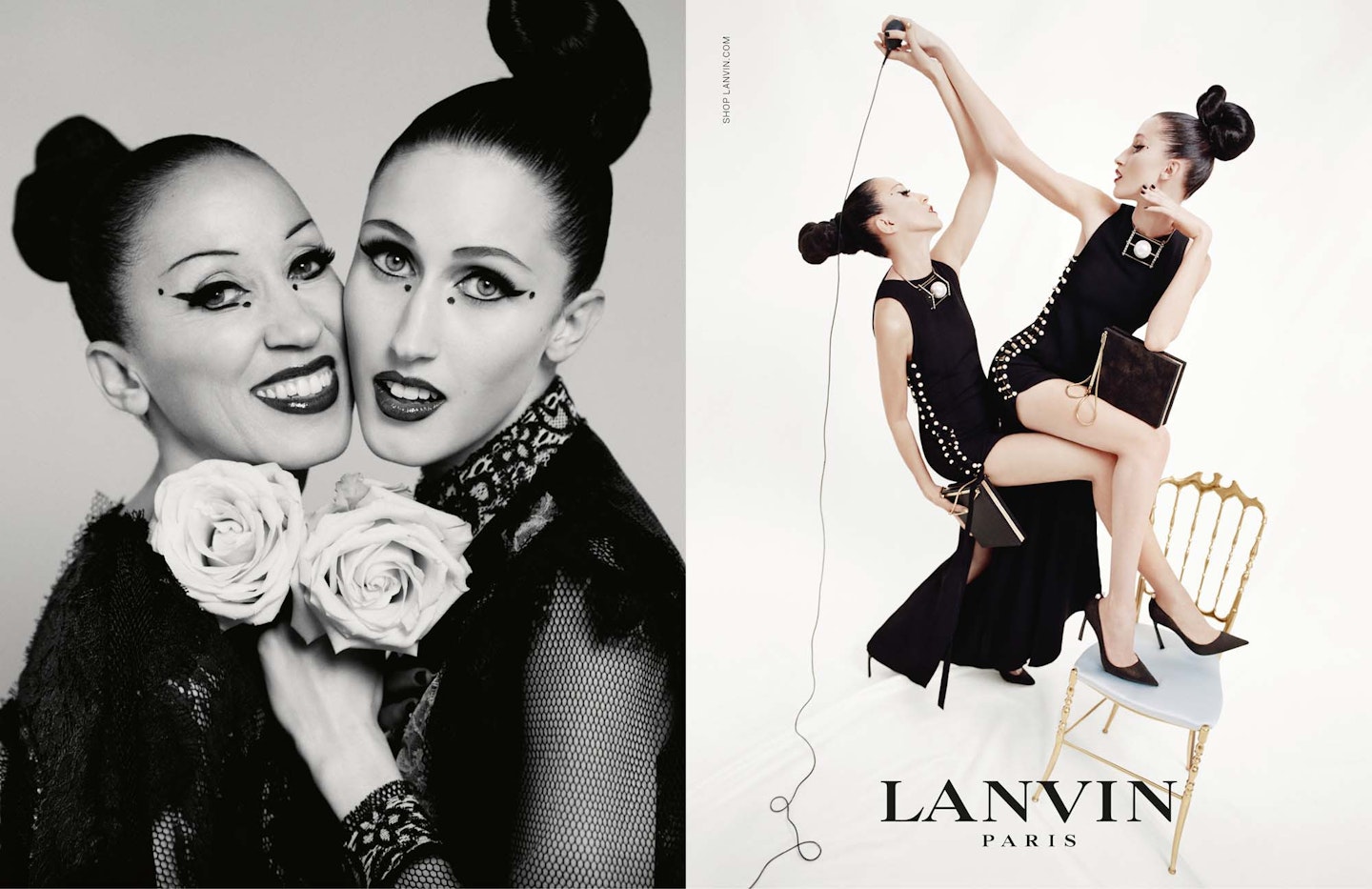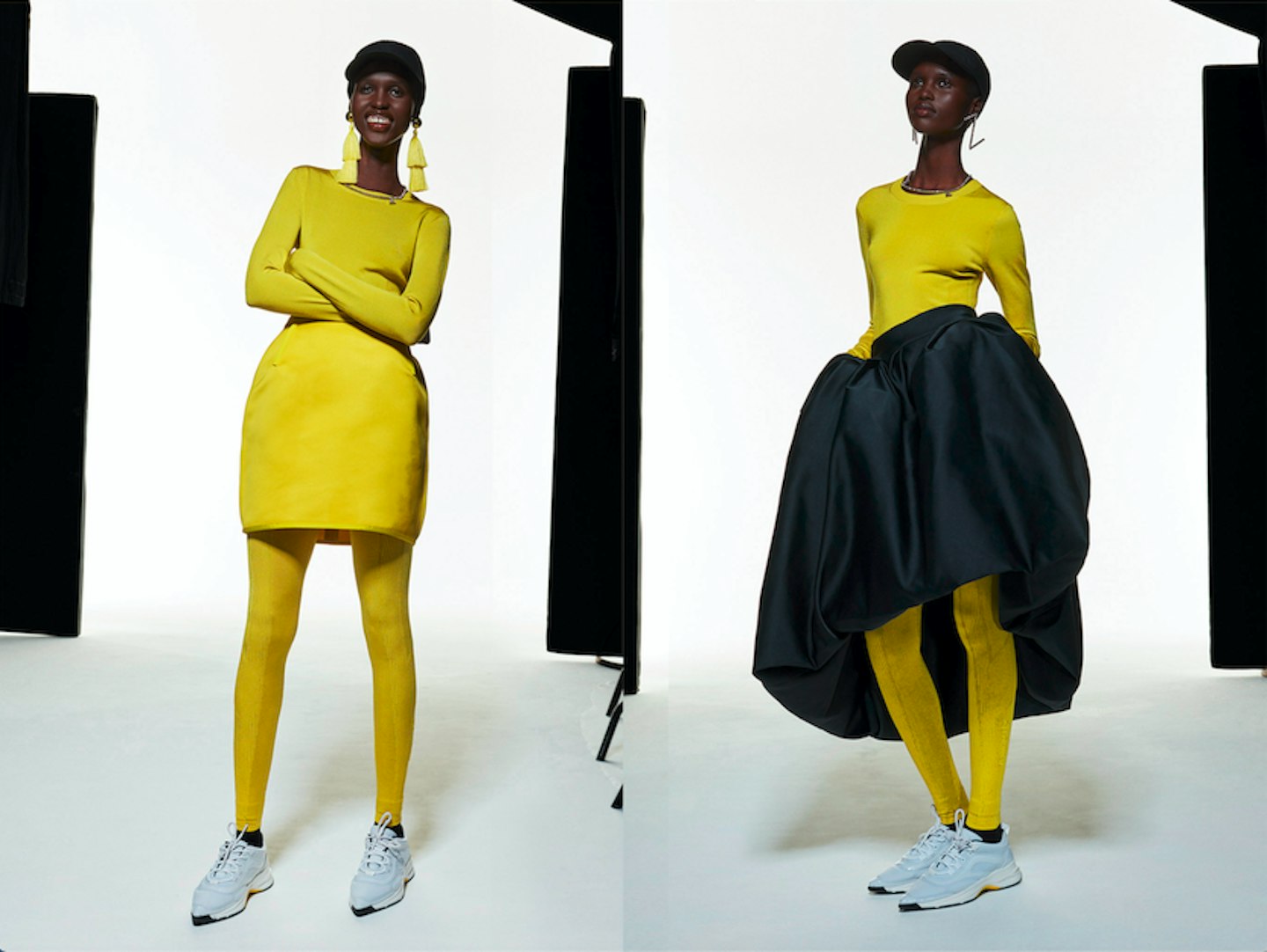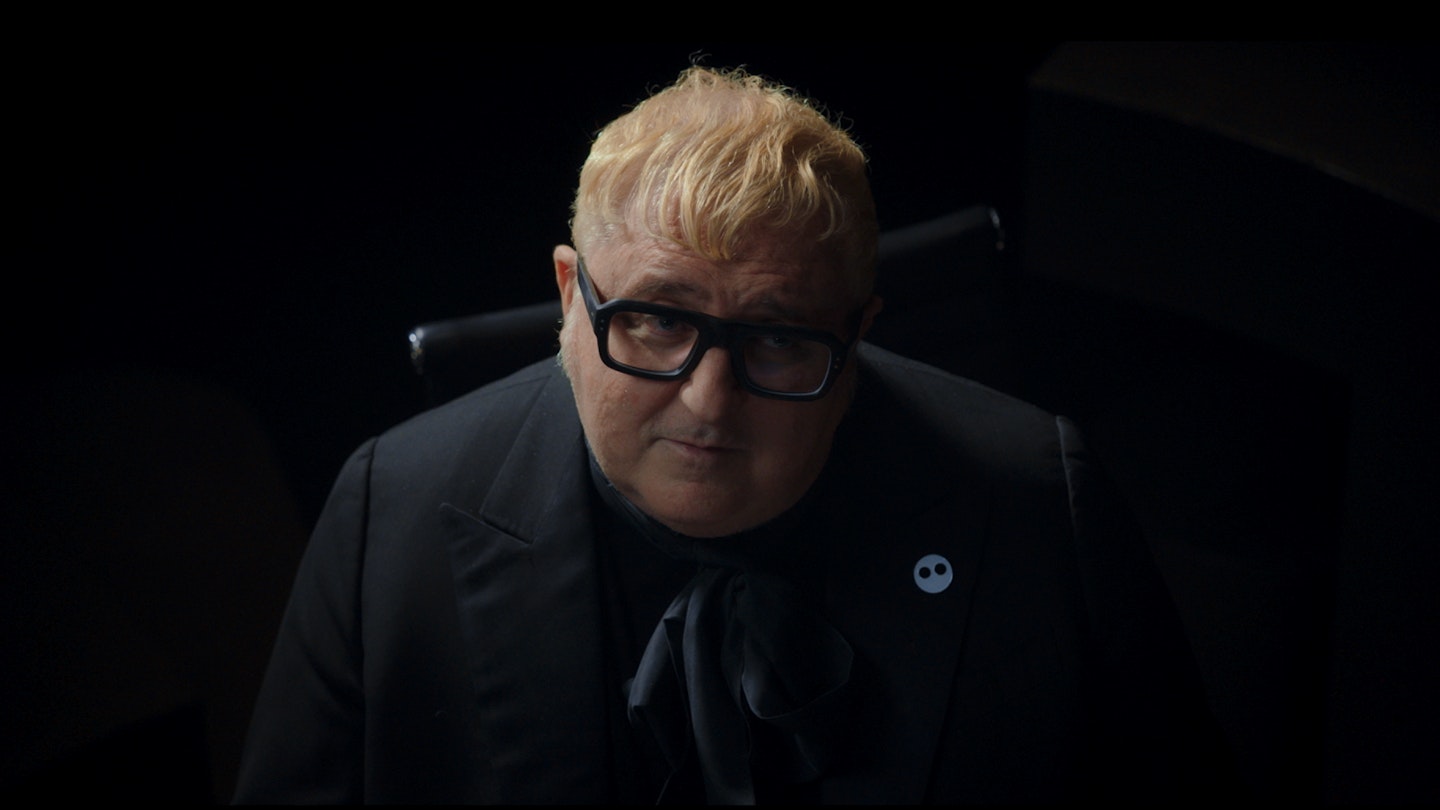Alber Elbaz, the iconic fashion designer best known for his work as creative director of Lanvin, died of Covid Saturday at a hospital in Paris at the age of 59. A famously charming and convivial presence within the fashion world, Elbaz was widely loved by editors and Hollywood actresses for his standout, dramatic, boldly feminine dresses that were as vibrant and decorative as they were technically and intellectually rigorous. In short, he was that rare designer who was a hit with fashion insider purists and mainstream red carpet lovers alike. The news, announced this morning by Compagnie Financière Richemont, which recently launched his highly anticipated new venture AZ Factory, has shocked the fashion world.
“I have lost not only a colleague but a beloved friend,” Richemont founder and chairman Johann Rupert said in a statement according to Women’s Wear Daily. ‘You made us dream, you made us think, and now you fly. Love, trust and respect, always. Alber, We Love you Forever,’ his team at AZ Factory said in a statement posted on the brand’s website. Meanwhile, tributes dominate social media. Marc Jacobs wrote, 'You were always good to me, and, I have always admired you for your kindness, your vision, your creativity and extraordinary talent. We spoke and what’s app’d only recently and the announcements of your death come as a true shock.' While Maria Grazia Chiuri said, 'Heartbroken by the news of the passing of my dear friend Alber. I will never forget how generous, talented, loving he was. He was the first person who made me feel at home in the fashion industry. His favourite word was love and it’s with this word I will always remember him.'

Born in Casablanca, Morocco in 1961, the Israeli Elbaz was commonly viewed as one of the fashion world’s greatest visionaries — and the kindest. His career spanned an early stint in New York where he worked as head designer for the American sportswear label Geoffrey Beene before going on to become creative director of the French fashion house, Guy Laroche in 1996. Two years later, he was chosen to succeed Yves Saint Laurent as creative director of YSL Rive Gauche. "For me, this isn't a career move, but the realisation of my life's dream," he said at the time in a press statement.
When he took over Lanvin as creative director in 2001, he injected the storied house with a sense of electricity and talkability it hadn’t known in decades, winning awards including the Legion of Honour in Paris, being declared one of Time Magazine's 100 most influential people in the world and becoming a household name through a memorable collaboration with H&M, in which shoppers famously waited in long queues overnight to shop the collection, a moment that ended with a kind of boy band level of hysteria when the doors opened.
On the red carpet, Elbaz’s Lanvin had a loyal following of Oscar and Grammy winners and nominees who regularly wore his vibrant, draped gowns including Meryl Streep, Rihanna, Natalie Portman, Cate Blanchett, Beyonce Knowles, Jennifer Lopez, Gwyneth Paltrow, Nicole Kidman, Emma Stone and more.
What kept them coming back was his devotion to women (his campaigns celebrated mothers and daughters and powerful takes on femininity) and desire to create clothes that provided freedom of movement, rather than constricted.
It was a mission that underpinned the label AZ Factory he launched during Paris couture week in January, after being unceremoniously pushed out of Lanvin in 2015, following 14 years at its helm. “I asked myself, ‘If I was a woman, what would I want?’” he told the New York Times. “Something that is first comfortable. Something fun. Something that lets me eat a big piece of cake. That allowed me to do something very simple. The most simple thing I ever did. I was really scared.”

The collection stood out for its size inclusivity, a longstanding weak spot for fashion in general. ‘I’m not here to transform women, I’m not here to make a better version of you. I actually hate it when people say that. What do you mean a better version of you? A dress will make a version of you?,’ he told Grazia in a recent interview.
While discussing his return to fashion he was hopeful, but clear-eyed. ‘I’m not an optimistic man, I’m a clown. And you know how clowns relax? They cry,’ he told Grazia. ‘They say the truth, in a funny way, but it’s always the truth. I’m feeling everybody that passes by me, I take every word, every look, I take it so personal. I’m so sensitive to everything and to everybody and all the time. It’s not always easy being me.’
